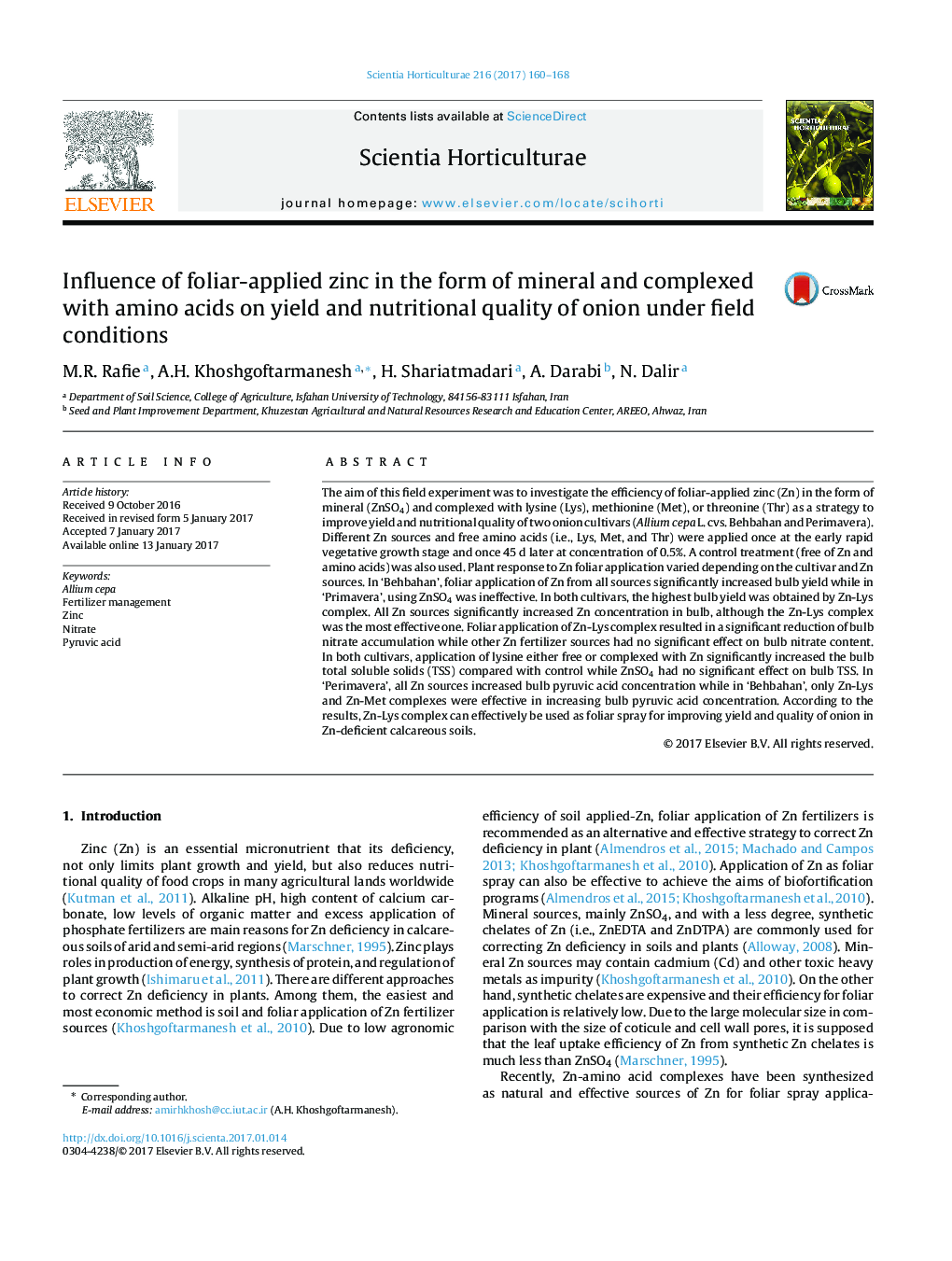| کد مقاله | کد نشریه | سال انتشار | مقاله انگلیسی | نسخه تمام متن |
|---|---|---|---|---|
| 5769766 | 1628782 | 2017 | 9 صفحه PDF | دانلود رایگان |
- In both onion cultivars, the highest bulb yield was obtained by Zn-Lys complex.
- Zn-Lys complex was the most effective Zn source in increasing bulb Zn concentration.
- Foliar application of Zn-Lys complex reduced bulb nitrate accumulation significantly.
- Using lysine either free or complexed with Zn significantly increased bulb total soluble solids.
- Zn-Lys can effectively be used as foliar spray for improving yield and quality of onion.
The aim of this field experiment was to investigate the efficiency of foliar-applied zinc (Zn) in the form of mineral (ZnSO4) and complexed with lysine (Lys), methionine (Met), or threonine (Thr) as a strategy to improve yield and nutritional quality of two onion cultivars (Allium cepa L. cvs. Behbahan and Perimavera). Different Zn sources and free amino acids (i.e., Lys, Met, and Thr) were applied once at the early rapid vegetative growth stage and once 45 d later at concentration of 0.5%. A control treatment (free of Zn and amino acids) was also used. Plant response to Zn foliar application varied depending on the cultivar and Zn sources. In 'Behbahan', foliar application of Zn from all sources significantly increased bulb yield while in 'Primavera', using ZnSO4 was ineffective. In both cultivars, the highest bulb yield was obtained by Zn-Lys complex. All Zn sources significantly increased Zn concentration in bulb, although the Zn-Lys complex was the most effective one. Foliar application of Zn-Lys complex resulted in a significant reduction of bulb nitrate accumulation while other Zn fertilizer sources had no significant effect on bulb nitrate content. In both cultivars, application of lysine either free or complexed with Zn significantly increased the bulb total soluble solids (TSS) compared with control while ZnSO4 had no significant effect on bulb TSS. In 'Perimavera', all Zn sources increased bulb pyruvic acid concentration while in 'Behbahan', only Zn-Lys and Zn-Met complexes were effective in increasing bulb pyruvic acid concentration. According to the results, Zn-Lys complex can effectively be used as foliar spray for improving yield and quality of onion in Zn-deficient calcareous soils.
Journal: Scientia Horticulturae - Volume 216, 14 February 2017, Pages 160-168
